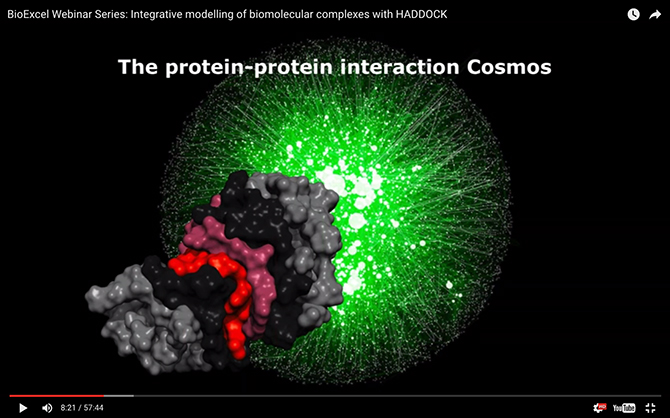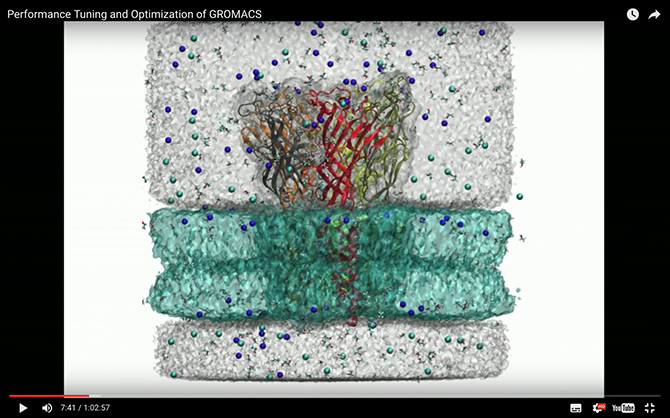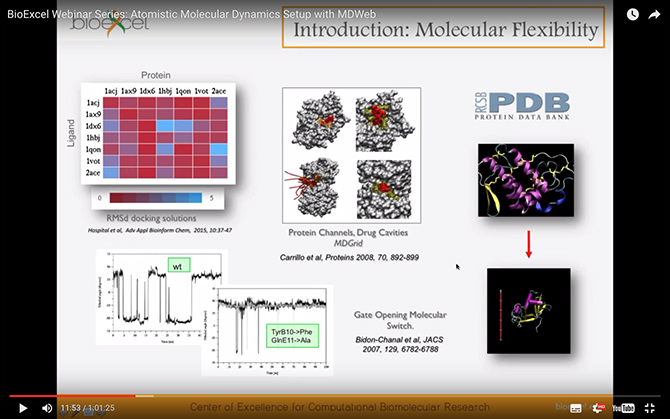BioExcel’s New Webinar Series
Rossen Apostolov, PDC

The BioExcel Centre of Excellence has launched a new series of educational webinars for computational biomolecular research. The series will cover broad topics related to the latest developments with the major software packages, their application to modelling and simulation, best practices for performance tuning and efficient usage on high performance computing (HPC) and novel architectures, introductory tutorials for novel users and much more.
The series began at the end of April with Alexandre Bonvin from Utrecht University talking about computational prediction of quaternary structure of biomolecular macromolecules, which is of paramount importance for the fundamental understanding of cellular processes and drug design. One way of increasing the accuracy of modelling methods that are used to predict the structure of biomolecular complexes is to include as much experimental or predictive information as possible in the process. HADDOCK is one of the most widely used tools for integrating the information derived from biochemical, biophysical or bioinformatics methods to enhance sampling, scoring, or both.

In the second webinar series, Mark Abraham from KTH addressed the very important topic of squeezing every cycle out of your hardware with GROMACS , one of the most highly tuned tools for Molecular Dynamics (MD) simulations and one of the most heavily used codes at PDC and other HPC centres world-wide. Developers are making exciting progress with the automation of the GROMACS code, but finding the optimal balance for a particular embedded-solvated-multi-protein-membrane system on a multi-node HPC machine with accelerators can be a challenge. A bit of theory though can easily give you extra power!

The series will continue with a talk for novice MD users and another on free energy calculations. All the talks are recorded and available on the BioExcel website and through the BioExcel YouTube channel - make sure to watch them and share them with your colleagues! You can also subscribe to the BioExcel newsletter (through BioExcel's website) to receive information about these and other useful upcoming BioExcel events.
